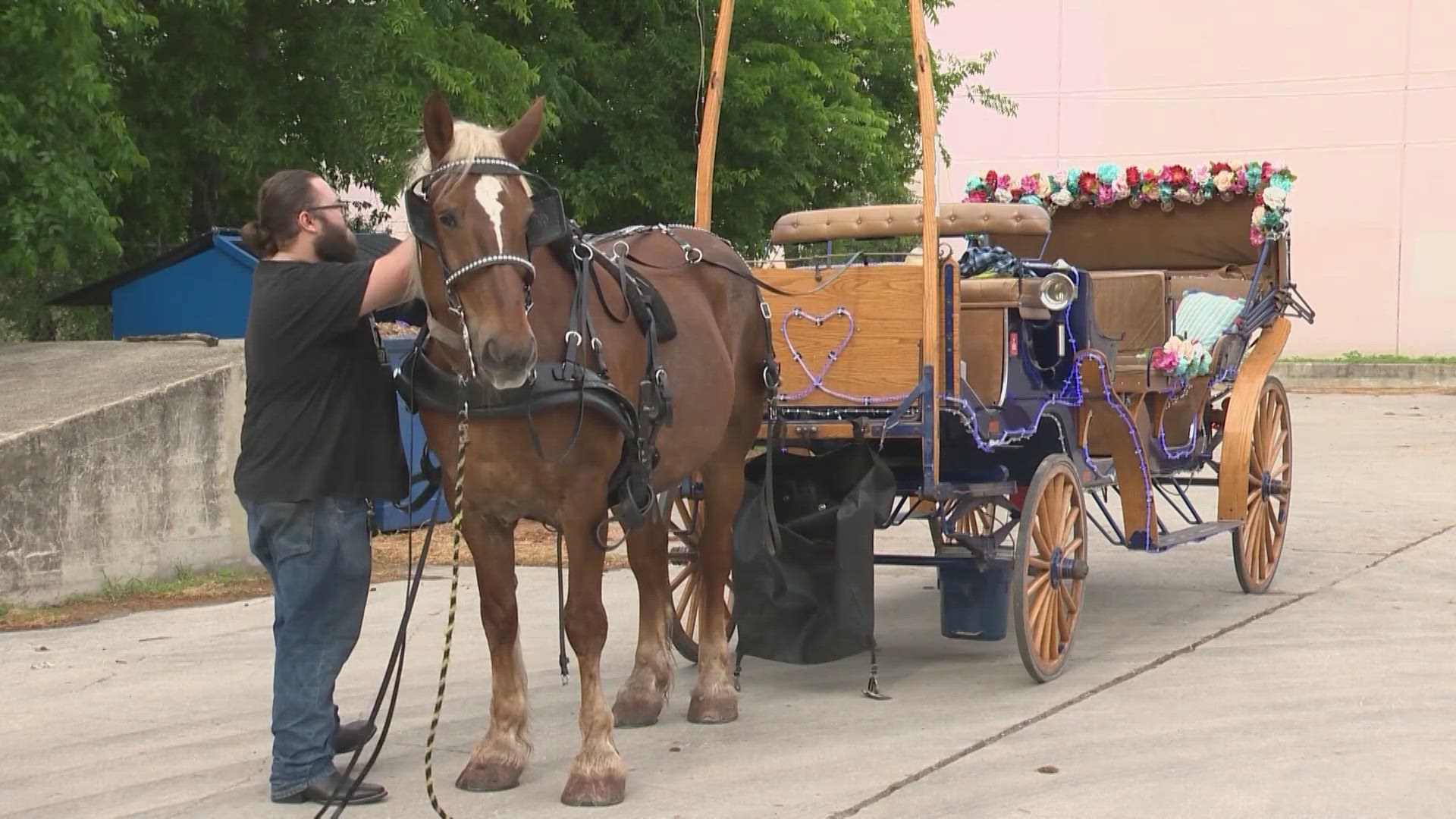SAN ANTONIO — Several San Antonio City Councilmembers continued to debate the possibility of removing horse-drawn carriages from downtown San Antonio.
On Tuesday, councilmembers a part of the Transportation and Infrastructure Committee listened to public comment and received insight from the San Antonio Police Department as they discussed whether or not horse-drawn carriages should continue to exist in San Antonio.
The conversation most recently began in December 2022 when councilmembers Jalen McKee-Rodriguez and Phyllis Viagran co-authored a Council Consideration Request (CCR) asking city staff to establish a plan to phase out horse-drawn carriages in San Antonio.
Councilmember Viagran was not present but submitted a lengthy statement as a part of public comment.
"As a longstanding advocate for small, minority-owned businesses, I want to work with the five companies that employ over 115 workers collectively to ensure they have as many options as possible, such as continuing education for their staff through Ready to Work or finding creative ways for riders, operators and horses to continue to coexist in the downtown footprint," the councilwoman wrote. "I understand that our ordinance has served as a model for other cities across the nation, but we can still do better."
Viagran also expressed interest in discussing the proposal with all of City Council in a B session.
McKee-Rodriguez is a part of the Transportation and Infrastructure Committee and still stands behind his CCR.
"My position has always been that we should have a total ban of horse-drawn carriages in San Antonio," he said. "My hope is that a part of that is a just transition that we look at opportunities to phase out, to find other means to operate in the meantime."
Both owners of Yellow Rose, HRH, Lollypop and Bluebonnet Carriages were present at the committee meeting and expressed their concerns.
"Our objective in our discussions with the city will be to find a permanent solution where the carriages can continue," said Art Martinez de Vara, attorney for the four companies. "I think any type of phase that would be a governmental taking and be something we're going have to look at in court."
Currently, horse-drawn carriages suspend operations when the temperature is above 95 degrees. They also suspend operations from noon to 8:30 p.m. when there is an Air Quality Health Alert. Horses can't work more than 8 hours a day, and require a minimum of 16 hours of rest.
In Dallas, horses must have ten minutes of rest every 50 minutes of work and can only work eight hours a day, with a 12 hour rest period in between. They suspend operations when the temperature is above 99 degrees or there is a thermal heat index of 150.
In Austin, horses have to have ten minutes of rest every hour of work and an hour of rest every three hours of work. They can only work six hours a day for five consecutive days, and must have 24 hours of rest in between. If the temperature is above 95 degrees or below 30 degrees, operations must be suspended.
"I think what’s interesting to me is when you look at the rest period and work maximum for the city of San Antonio, we are the strictest on how long a horse can work and how long a horse must rest," said Rick Riley, assistant police director for the San Antonio Police Department.
Alternative options were presented and discussed including the possibility horseless electric carriages in San Antonio. There were also preliminary conversations about possibly moving horse-drawn carriages to Brackenridge Park, Hemisfair or the Pearl.
The Transportation and Infrastructure Committee hopes to have a proposed plan to phase out carriages by the next meeting in August. The Transportation Advisory Board (TAB) has unanimously advised the committee to keep horse-drawn carriages downtown and for city staff to collaborate with the horse carriage industry to establish conditions for continuing downtown carriage services.
> MORE ON KENS
TRENDING:

